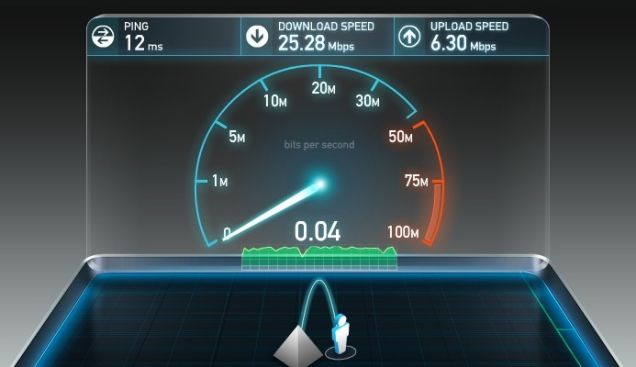JAMES ROYCE WRITES —You’d think Australia — a rich, resourceful, forward-thinking country surrounded by Asian neighbors — would have broadband speeds comparable to or better than most. Sadly you’d think wrong.
It wasn’t quite enough of an issue to push the ruling coalition out of power in Australia’s recent federal elections, but opposition groups did their darndest to blame the sluggish web speeds on Prime Minister Malcolm Turnbull and company.
And the accusations against the Coalition seem to have merit. In September 2013, the month the Coalition took office under former PM Tony Abbott, reports showed that Australia’s peak connection speed was 30.1 megabits per second (mbps), ranking it 30th in the world. But now, up-to-date reports claim that Australia’s average peak connection speed of 39.3 mbps has dropped it to 60th in the world— putting it below the US, Canada and a majority of countries in both Asia and Europe.
Though average global peak connection speeds round off at just 32.3 mbps, Australia’s most recent speeds pale compared to some of its Asian neighbors. Singapore, Hong Kong, South Korea and Japan— all of which lead the world in terms of speedy internet connection — regularly experience peak connection speeds of 135.4 mbps, 101.1 mbps, 86.6 mbps and 78.4 mbps, respectively.
Slow speeds are primarily thought to be the result of the Coalitions’ plan to install a cut-price part-copper fibre-to-the-node technology to Australian homes and businesses implemented three years ago, despite the speed limitations copper technology was already known to have. The decision to go with this alternate rollout choice was based on the notion that it would be delivered to Aussie homes earlier and cheaper, neither of which happened.
“They’ve [the Coalition] had almost three years on this,” Opposition’s Communications Spokesman Jason Clare told ABC News. “Malcolm Turnbull has doubled the cost of the project and doubled the time it will take. Less than 20 percent of the country has NBN (National Broadband Network), which is why if you are still buffering blame Malcolm Turnbull…. Most of Asia, most of Europe, America, Canada, New Zealand, they are all in front of us in internet speeds. This means we are less productive, less competitive, less set up to make sure we get the jobs of the future.”
Bill Shorten of the Australian Labor Party, and leader of the Opposition, had put the issue of Aussie internet at the forefront of recent elections, knowing how important it is to not only younger voters, but also university educated and working voters who rely heavily on internet speeds. If elected, Shorten said he planned to deliver fibre-to-the-home internet connections to approximately 39 percent, or around 5 million homes and businesses by June 2022. This is the same time frame previously promised by the Coalition government, only the Coalition planned to be able to reach out to just 20 percent, or 2.5 million homes and businesses in this time.
Alas, while final votes are still being tallied, it appears clear that Turnbull and his partners will return to office, so Australians may need to get used to the spinning ball of ‘Still loading’ websites.

